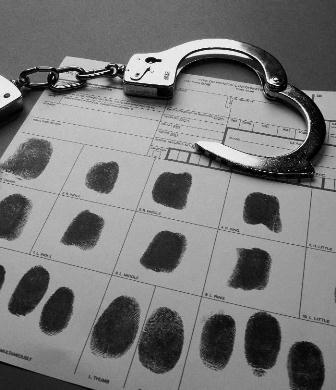News
Expungement: Changes to Who Deserves a Second Chance at a Clean Record
- 12/5/2012
- Oklahoma County Bar Association (Briefcase)
 Expungements are intended to aid those who are acquitted, exonerated, or who otherwise deserve a second chance at a clean record. State v. McMahon, 1998 OK CIV APP 103, ¶9. Those persons who qualify for the opportunity to clear their record by expungement are defined in 22 O.S. §18. This statute was amended this past Legislative Session by HB3091. The revised statute became effective on November 1, 2012.
Expungements are intended to aid those who are acquitted, exonerated, or who otherwise deserve a second chance at a clean record. State v. McMahon, 1998 OK CIV APP 103, ¶9. Those persons who qualify for the opportunity to clear their record by expungement are defined in 22 O.S. §18. This statute was amended this past Legislative Session by HB3091. The revised statute became effective on November 1, 2012.
The superseded statute contained 10 paragraphs that defined what persons qualify to expunge all arrest and case information, except basic identification information, from their record. Eight of the ten definitions remained substantively unchanged. However, significant change was made to paragraphs 5 and 6 of the superseded statute.
Paragraphs 5, 7, 8, and 9 of the statute that became effective on November 1, 2012, redefine who may apply for expungement and when they may apply. Approximately 85 percent of the expungement cases I have filed were for persons who qualified for an expungement pursuant to paragraphs 5 or 6 of the superseded statute. Often, the person qualified to expunge the matter from their record because the person had received a deferred sentence that resulted in dismissal of their case within one year of the date of their arrest. The ability to expunge if the case was dismissed within one year of the date arrest was a consideration I utilized in plea negotiations when the facts so warranted. Qualification is no longer allowed if a case is dismissed within one year of the date of a person’s arrest.
Paragraph 5 of the new statute states that if a person is arrested and no charges are filed, including charges for a different offense than what the person was arrested for, and the statute of limitations has expired or the prosecutor has declined to file charges, the person qualifies to expunge the matter from their record. The amendment now places a time frame on when a person who was not charged may file for an expungement. The shortest statute of limitations for a criminal offense is three years. Some crimes contain no statute of limitations. Often, the decision of the prosecutor to decline to file charges is not contained in written form. Thus, a person who qualifies under this paragraph may have to wait a longer period of time to file for an expungement than they would have under the old statute.
Paragraph 7 allows for a person who is charged with a crime, either misdemeanor or felony, to expunge the arrest and case information from their record if the case is dismissed. Expungement would not be allowed if the person has ever been convicted of a misdemeanor or felony or has a misdemeanor or felony crime pending. This definition would not allow a person with a prior conviction or pending case to expunge felony cases that are dismissed by the Court following a preliminary hearing and all cases that are dismissed by the prosecutor on the merits. A person always qualified for expungement under these circumstances pursuant to the superseded statute. The new statute has created an unreasonable restriction on always being able to expunge a matter that factually should not have been prosecuted. The legislature must review this unreasonable restriction and amend paragraph 7 accordingly.
Paragraphs 8 and 9 clarify a significant deficiency in the superseded statute. Prior to November 1, 2012, a person who was convicted of a misdemeanor or nonviolent felony crime was able to expunge a matter from their record if other statutory requirements were met. A person who had judgment entered in a misdemeanor case had to wait 10 years from the date the judgment was entered to qualify for an expungement. Meanwhile, employing a strict reading of the statute, a person who received a deferred sentence in a felony case that did not result in dismissal of the case within one year of the date of the arrest could not expunge the arrest or the case filing information from their record. Thus, a person with a felony conviction could completely clear their record while a person who received a deferred sentence in a felony case could not.
Paragraphs 8 and 9 of the new statute allow for a person who has successfully completed a deferred sentence to expunge a misdemeanor or nonviolent felony from their record if they do not have any other misdemeanor or felony convictions and no misdemeanor or felony is currently pending against the individual. Persons charged with a misdemeanor must wait two years following the dismissal of the case before qualifying to file for an expungement. Persons charged with a nonviolent felony must wait ten years following the dismissal of the case before qualifying to file for an expungement. A person does not have to receive a pardon from the Governor to expunge a matter from their record following a dismissal of the case following successful completion of a deferred sentence. Significant progress was made by the Legislature to create fairness in who qualifies to expunge criminal arrest and case information from their record by the amendment to 22 O.S. §18. However, further work must be done to insure that persons, such as those who are cleared of crimes through dismissal by the court or by the prosecution, may expunge those matters from their record.
- Employment Law